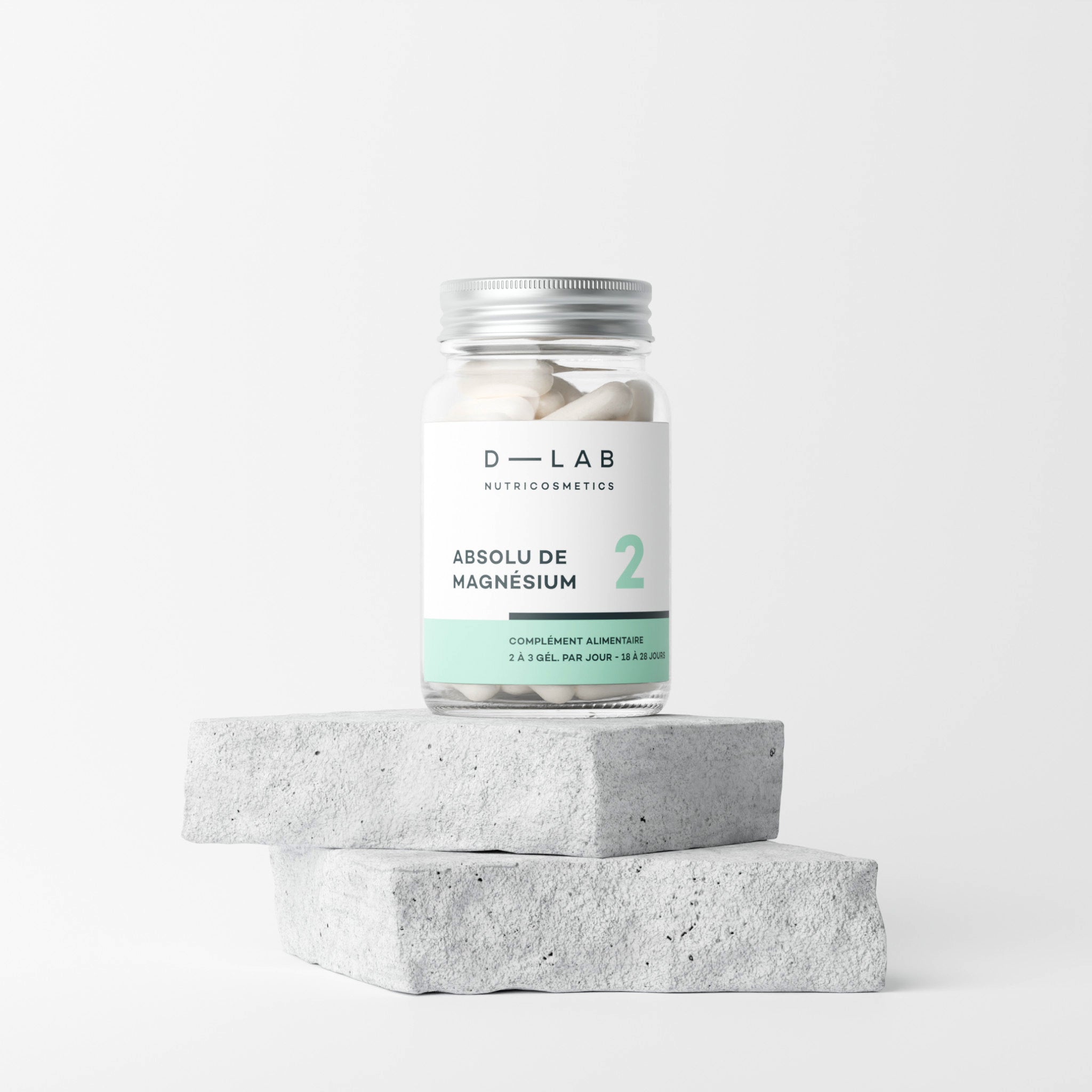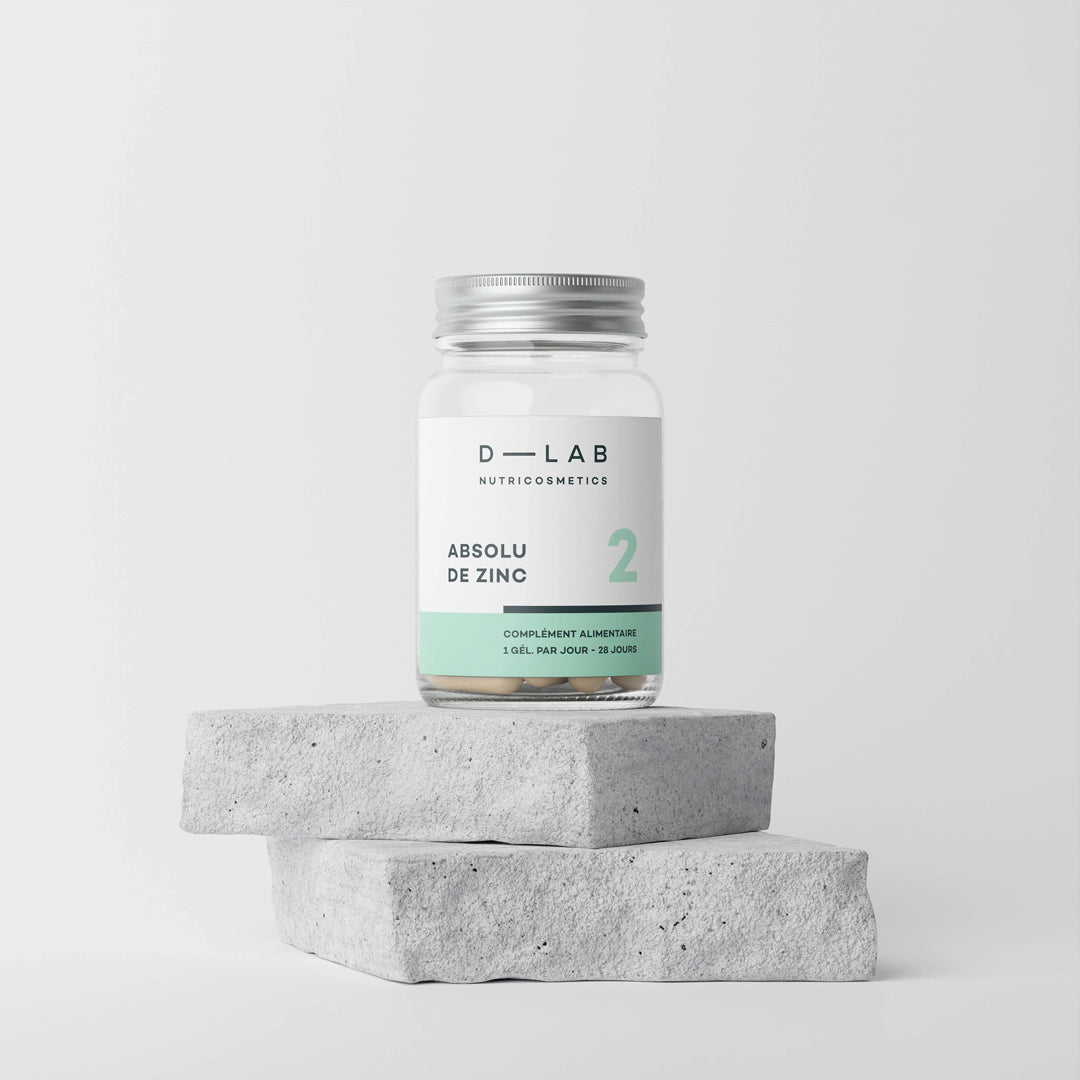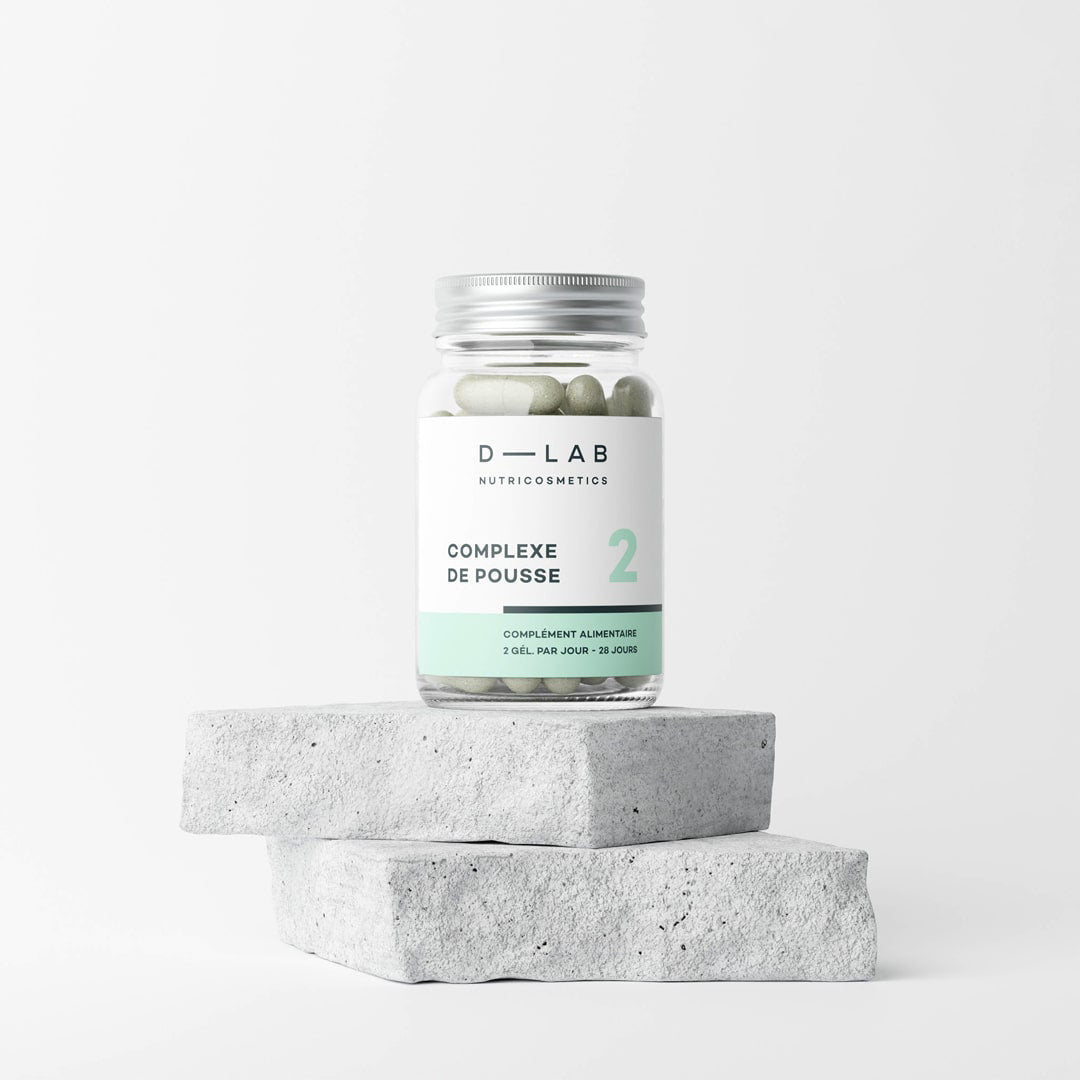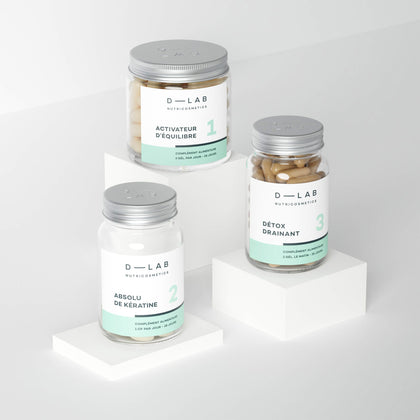Childbirth represents a real test for the body. The young mother made a marathon effort when giving birth to her child, her body is in full de-gestation. Added to this is lack of sleep, hormonal variations, loss of blood and fluids...
To recover well during the postpartum period, postpartum nutrition plays an essential role. Indeed, the nutritional needs of the young mother are greater than those of the pregnant woman.
In this article, we reveal all our nutritional advice to recover well and regain energy little by little!

Summary
I. The needs of the young mother
1. Nutritional needs
During the period after childbirth, the body needs to recover. Postpartum nutrition is essential. Essential nutrients such as proteins, fats, carbohydrates, vitamins and minerals are essential for recovery, but also to provide the baby with good quality breast milk if breastfeeding is chosen.
- Proteins play an essential role in meeting needs. Amino acid intake is essential for cellular and muscle reconstruction. For this, the consumption of meat, fish, eggs, dairy products, but also cereals and plants is recommended.
- lipids constitute the body's energy reserve. They are sources of essential fatty acids. The very first days, a diet particularly rich in good fats can be essential to facilitate completely disrupted intestinal transit. Intake of oils rich in Omega-3 (rapeseed oil, walnuts) and fatty fish (salmon, tuna, mackerel) twice a week is recommended.
- carbohydrates are the main source of energy. They have a satietogenic effect (participates in the feeling of fullness after a meal), regulate blood sugar levels and prevent snacking during the day. Favoring complex carbohydrates which take longer to digest allows you to go between meal intervals. Don't skimp on starchy foods!
Postpartum, it is recommended to take supplements to help get the body and mind back into shape. It is important to provide the nutrients and micronutrients necessary for the body to function properly.
Do not skimp on the intake of:
- Iron which fights against fatigue
- Calcium, because the baby draws from the reserves
- Vitamin C in addition to iron
- Vitamin D in addition to calcium
- Vitamin B9 which is involved in the baby's brain development
These micronutrients are mainly found in a good postpartum diet such as spinach, strawberries, melon, eggs, green vegetables, etc.
Omega-3 supplementation for young mothers helps combat postpartum depression, which often occurs in the weeks following childbirth.
At D-LAB, Absolute Omega-3 provides a high dose of Omega-3 from microalgae. This expert formula is titrated in DHA to ensure good cellular health, and in EPA, with strong anti-inflammatory power.
2. Fiber to prevent constipation
Constipation problems are very common during the postpartum period and it is very important not to let them set in to prevent them from becoming chronic. Postpartum nutrition plays an important role in this transition period.
Consuming fiber to improve transit and limit the risk of postpartum constipation is essential.
Prefer insoluble fibers found in the skin of fruits and vegetables, wheat bran, vegetables (broccoli, asparagus), whole grains, oilseeds (almonds, walnuts, hazelnuts), prunes, seeds , leaves and roots.
They accelerate transit and promote satiety, thus contributing to the control of appetite and weight. They reduce the risk of constipation by promoting regular functioning of the intestine and good health of the digestive system.
Avoid raw vegetables which irritate the intestines, as well as the consumption of legumes (chickpeas, lentils, beans) which promote digestive discomfort.
3. Hydration is essential
Childbirth often leads to dehydration of the body, due to a sharp increase in sweating, blood loss and fluid loss. If breastfeeding is planned: It is estimated that breastfeeding women need an additional liter of fluid per day compared to non-breastfeeding women.
It is important to hydrate well throughout the day, by consuming water, herbal teas, or broths.
Use lukewarm or room temperature water. Herbal teas and infusions of plants and spices promote optimal recovery. In addition to being warming and comforting, they contribute to the well-being of the body thanks to their digestive, healing, detoxifying and purifying properties...
Finally, avoid drinks that are too sweet, alcoholic, and rich in theine or caffeine, which slow down the activity of the filter and elimination organs.

4. Warm, soft meals for good recovery
After childbirth, the young mother's diet can be compared to the stages of dietary diversification in infants.
It is recommended to consume drinks, foods and meals that are hot, soft, moist, rich in oil and spices, and naturally sweetened.
Favor soups, broths, stews and porridges. Generally speaking, cooking will need to be longer and the quantities of water higher to obtain smooth textures.
Over the days and weeks, different textures can be introduced until the mother gradually returns to her basic diet.
5. Eat until you are full
We advise you to eat as much as you want, according to your fullness. Think about yourself, and treat yourself during this new and complicated time.
Learn to eat mindfully and don't start too restrictive diets after giving birth. Indeed, your body needs to rebuild itself, which is why it is important to meet its nutritional needs.
By eating a varied, balanced diet in sufficient quantity, weight loss will happen by itself. Once your body is rebuilt, you can accelerate this weight loss thanks to sport and food supplements. We recommend the Fat Burning Program in this case.
6. The importance of antioxidants
Antioxidants play a crucial role in postpartum recovery. They help protect cells from oxidative stress and promote the healing process. Berries, green vegetables, nuts and seeds are excellent sources of antioxidants.
Additionally, dietary supplements rich in antioxidants can provide additional support to strengthen the immune system and promote rapid recovery.
7. The benefits of probiotics
Probiotics are bacteria beneficial for intestinal health. After childbirth, it is essential to restore the balance of the intestinal flora for optimal digestion and better absorption of nutrients.
Yogurts, kefirs, and food supplements containing probiotics can help maintain healthy intestinal flora. At D-LAB, the Flat Stomach Detox contains five complementary strains of probiotics to strengthen the balance of the intestinal flora.
8. Superfoods to boost energy
Superfoods are a great source of concentrated nutrients that can help increase energy and improve overall well-being.
Chia seeds, goji berries, walnuts, spinach, salmon and avocado are great choices for postpartum moms. They are rich in vitamins, minerals and antioxidants, essential for supporting recovery and increasing energy levels.
9. Herbs and spices for recovery
Herbs and spices can play an important role in postpartum recovery. Turmeric, ginger, and fenugreek are known for their anti-inflammatory and healing properties.
Infusions of these herbs can be warming and comforting, promoting optimal recovery. In addition to their health benefits, they also add flavor to meals and drinks, making eating more enjoyable.
10. The role of amino acids
Amino acids are the building blocks of proteins and play an essential role in cellular and muscle reconstruction.
After childbirth, it is crucial to consume foods rich in amino acids to support recovery.
Complete protein sources such as meat, fish, eggs, and dairy products are recommended. For vegetarians, combinations of legumes and grains can provide the necessary amino acids.
11. Essential micronutrients
Besides macronutrients such as protein, fat, and carbohydrates, micronutrients are also crucial for postpartum recovery. Vitamins and minerals play various roles in supporting the immune system, energy production and overall health.
Green vegetables, fruits, nuts and seeds are rich in essential micronutrients. Dietary supplements like Magnesium Absolute and Keratin Absolute from D-LAB can also help fill nutritional gaps.
12. Contributions of B vitamins and zinc
In addition to the nutrients mentioned, B vitamins and zinc are essential during the postpartum period.
B vitamins, including B6 and B12, play a key role in energy production and supporting the nervous system.
They are also crucial for the production of breast milk. Zinc, for its part, contributes to tissue repair and strengthening the immune system. Foods rich in B vitamins include whole grains, legumes, eggs and lean meats. Zinc is found in abundance in seafood, pumpkin seeds and nuts.
13. The importance of nutritional drinks
Nutritional drinks can be an excellent addition to the diet of new mothers, especially when they lack time to prepare balanced meals.
Smoothies made with green vegetables, fresh fruit, chia seeds, and protein powder can provide a quick, complete boost of essential nutrients. Drinks rich in electrolytes can also help maintain optimal hydration, especially if the mother is breastfeeding.
II. Postpartum nutrition
1. Diet after childbirth
Postpartum breastfeeding diet
For breastfeeding mothers, it is crucial to maintain a rich and varied diet. Calorie needs are increasing, and it is important to consume nutrient-dense foods to support milk production. Protein, good fats and complex carbohydrates are essential.
The postpartum diet for breastfeeding mothers should include foods rich in iron, calcium, and vitamins. Spinach, dairy, eggs and citrus fruits are wise choices. It is also recommended to drink plenty of water to stay hydrated and support milk production.
2. Postpartum soup
Soup is a great postpartum food choice. It is easy to digest, hydrating and can be enriched with many essential nutrients. Soups made from vegetables, legumes and meat or fish broths are particularly beneficial. They provide vitamins, minerals and proteins necessary for recovery.
3. Nutritious snacks
Snacks are an important component of a balanced diet after childbirth. Choose snacks rich in nutrients such as dried fruits, nuts, natural yogurts, or even homemade cereal bars. These snacks help maintain a stable energy level throughout the day and satisfy small hunger pangs between main meals.
4. The importance of antioxidants
Antioxidants play a crucial role in postpartum recovery by combating oxidative stress and strengthening the immune system. Red fruits, citrus fruits, green vegetables and green tea are excellent sources of antioxidants. Incorporating these foods into the daily diet helps protect cells and promote rapid recovery.
5. Probiotics for intestinal well-being
Probiotics are beneficial for maintaining a balanced intestinal microbiota. After childbirth, consuming fermented foods like yogurt, kefir, sauerkraut and miso can help restore intestinal flora and improve digestion. Healthy intestinal flora is essential for proper nutrient assimilation and a robust immune system.
6. Superfoods for optimal energy
Superfoods can provide significant energy support during the postpartum period. Chia seeds, goji berries, spirulina and avocados are rich in vitamins, minerals and antioxidants. These foods help revitalize the body, improve mood and increase overall energy. Incorporating these superfoods into daily meals can be done easily, for example by adding chia seeds to yogurt or incorporating spirulina into a smoothie.
7. Foods to avoid and to favor
After childbirth, it is crucial to choose foods that promote recovery and well-being. Avoid foods that are too fatty, spicy, and alcoholic drinks.
Favor natural, unprocessed foods, rich in essential nutrients. Green vegetables, fresh fruits, whole grains, lean proteins, dairy products and sources of good fats like avocados and nuts are recommended choices to support the health and energy of new mothers.
III. Postpartum food supplements
At D-LAB, we understand that the postpartum period is a difficult stage, both physically and morally. The young mother's body is in full de-gestation and has just made a marathon effort during the birth of her child.
This is why we have developed unique nutritional programs to support young mothers during this period.
1. After-Baby Program
This complete program is intended for all young mothers looking for a complete and targeted fitness. It acts on the entire body: it rebalances the organism and hormonal activity, reduces postpartum hair loss and promotes elimination.
- The Balance Activator helps regulate hormonal activity and promotes the proper functioning of the nervous system thanks to magnesium and vitamins B2, B6 and C.
- Keratin Absolute provides a high dose of natural and particularly bioavailable keratin. Its effectiveness in reducing hair loss is clinically proven.
- The Draining Detox supports detoxification mechanisms and promotes urinary elimination thanks to bearberry, dandelion and chicory extracts.
In addition to these products, Absolu Omega-3 is particularly recommended for its high concentration of DHA and EPA, essential for mental health and mood regulation. Omega-3 helps fight postpartum depression and promotes faster emotional recovery.
For optimal support, it is recommended to integrate the Multivitamin Complex which provides a wide range of essential vitamins and minerals, thus strengthening natural defenses and helping to combat fatigue.
2. Post-Cesarean Program
This comprehensive program is specifically formulated to facilitate the return to active life after a cesarean section. It promotes the recovery of the body, improves healing and restarts transit to bring well-being to the young mother.
- The Regeneration Activator is enriched with marine magnesium, coenzyme Q10, vitamins C and B, and amino acids. It participates in skin renewal to limit the appearance of scars.
- Hyaluronic Absolute allows the secretion of collagen, essential for cell regeneration. A powerful moisturizing active ingredient, it also allows the reconstruction of blood vessels which provide the oxygen and nutrients necessary for healing.
- The Flat Stomach Detox improves intestinal comfort. These 5 complementary strains of probiotics promote the balance of the intestinal flora to strengthen the sensitized body. It also contains vegetable charcoal and plant and algae extracts which help reduce bloating and help you lose weight.
In addition, vitamin E supplementation is recommended for its antioxidant properties which accelerate healing and reduce inflammation. Vitamin E helps maintain healthy skin tissues and promotes rapid healing of scars.
3. Focus on essential nutrients postpartum
Postpartum nutritional needs are increased to support the body's recovery and breast milk production. Here are some key nutrients to consider:
- Iron: Essential to combat anemia and postpartum fatigue. Products like D-LAB's Iron Absolute are formulated to maximize absorption and effectiveness.
- Calcium: Essential for bone health, especially if the baby is breastfed. Supplements such as Calcium Absolute ensure sufficient intake for mother and child.
- Vitamin D: Crucial for calcium absorption and maintenance of bone and immune health. Vitamin D3 from D-LAB promotes optimal bioavailability.
- Probiotics: To restore the balance of the intestinal flora and improve digestive comfort. The D-LAB Microbiome Program is specially designed to strengthen the intestinal microbiota.
By integrating these nutrients into a postpartum supplementation routine, it is possible to effectively support the recovery and overall well-being of new mothers.
4. Why choose D-LAB food supplements?
D-LAB dietary supplements are formulated with rigorous attention to detail and effectiveness. Each product is developed in our own green factory in France, guaranteeing exceptional quality and full ingredient traceability.
D-LAB formulations are distinguished by their naturalness and bioavailability, thanks to the use of ingredients from Green Tech. Our products are designed to act in synergy and target the specific needs of young mothers, while respecting the natural balance of the body.
By choosing D-LAB food supplements, young mothers benefit from a global approach to nutrition and well-being, ensuring optimal recovery after childbirth.
D-LAB programs are also tailored to meet the specific needs of each mother. Whether for skin regeneration, hormonal support or improving digestion, each formula is designed to offer a precise and effective response to postpartum challenges.
IV. Our postpartum recommendations
- If severe hair loss occurs after childbirth, the Hair Mass Program provides all the nutrients necessary to rebuild the hair fiber.
- Magnesium needs are greater in breastfeeding women who must increase their magnesium intake by 30 mg per day, or 390 mg daily. This mineral is essential for the mother's body and that of her child. At D-LAB, Magnesium Absolute is recommended. Its formula contains natural magnesium from sea water, and patented micro-encapsulated magnesium to promote perfect bioavailability.
- Several studies have demonstrated that the risks of postpartum depression can be prevented by adjusting daily intake of Omega-3. To supplement, D-LAB offers Absolute Omega-3 from microalgae and titrated in EPA and DHA.
- A varied and balanced diet should include sources of protein, good fats and complex carbohydrates. Fruits, vegetables, whole grains and lean proteins are essential for good recovery. Dietary supplements can also fill nutritional gaps.
- Vitamins and minerals play a crucial role in recovery. Products like D-LAB's Iron Absolute and Calcium Absolute can help meet increased needs for these nutrients.
- For moms who experience postpartum joint pain, collagen supplementation is recommended. Collagen Absolute supports tissue regeneration and maintains joint flexibility.
1. Dietary supplements for recovery
In addition to the specific supplements already mentioned, other products may be beneficial for postpartum recovery. Collagen Absolute helps maintain skin elasticity and promote cell regeneration, essential after pregnancy.
2. Digestive support and intestinal well-being
Digestive well-being is crucial in the postpartum period. D-LAB's Flat Stomach Detox, thanks to its probiotics and plant extracts, helps restore the balance of intestinal flora, reduces bloating and promotes healthy digestion. Fiber is essential to prevent common postpartum constipation, and a fiber-rich diet should be supplemented with adequate hydration. D-LAB also recommends Vegetable Charcoal Absolute for its detoxifying and soothing properties for the digestive system.
3. Emotional and mental support
Mental health is just as important as physical health. The Serenity Program, incorporating adaptogenic plant extracts such as rhodiola and ashwagandha, can help manage stress and improve sleep quality. The B vitamins and magnesium present in this program also support the nervous system and contribute to better stress management.
How to adapt your diet to support breastfeeding and milk production?
To support breastfeeding and milk production, it is essential to consume nutrient-rich foods. Protein, good fats and complex carbohydrates are crucial. Green vegetables, fresh fruits, whole grains and lean protein sources are preferred. Omega-3s, found in fatty fish and flax seeds, are also important for the health of mother and baby. Drinking plenty of water is also recommended to stay hydrated and support milk production.
How can postpartum nutrition help improve skin and hair quality?
A diet rich in essential nutrients can greatly improve the quality of postpartum skin and hair. Protein, vitamins A, C, D and E, as well as minerals like zinc and iron, play a crucial role. Foods like green vegetables, fruits, nuts, seeds and oily fish are particularly beneficial. Dietary supplements, such as D-LAB Keratin Absolute and Omega-3 Absolute, can also support hair and skin health.
What food to avoid after giving birth?
After giving birth, it is advisable to avoid certain foods that can cause digestive discomfort or interfere with recovery. Foods that are too fatty, spicy, alcoholic drinks, drinks rich in caffeine and processed foods should be avoided. Raw vegetables and legumes can also be irritating to the intestines and should therefore be consumed in moderation.
What diet for a woman who has just given birth?
For a woman who has just given birth, a nutrient-rich diet is essential. Proteins, good fats, complex carbohydrates, vitamins and minerals should be at the heart of the diet. Green vegetables, fresh fruits, whole grains, dairy products and lean protein sources are recommended. It is also important to drink plenty of water and consume herbal teas to stay hydrated.
What dietary supplements are recommended to support new mothers during the postpartum period?
Dietary supplements can play a crucial role in supporting new mothers during the postpartum period. At D-LAB, several programs are specially designed for this period. The After-Baby Program and the Post-Cesarean Program are particularly recommended. Products like Keratin Absolute, Omega-3 Absolute and Magnesium Absolute can also provide valuable support.
What are the best foods to support postpartum recovery?
The best foods to support postpartum recovery are those rich in essential nutrients. Protein, good fats, complex carbohydrates, vitamins and minerals are crucial. Green vegetables, fresh fruits, whole grains, dairy products and lean protein sources are particularly beneficial. Soups, broths and warm, soft foods are also recommended for better digestion and recovery.
What superfoods can boost the energy of postpartum moms?
Superfoods can be a big help in boosting the energy of postpartum moms. Chia seeds, goji berries, walnuts, flax seeds, spinach, salmon and avocado are great choices. These foods are rich in essential nutrients, antioxidants and omega-3 fatty acids, which can help increase energy and improve overall well-being.



























